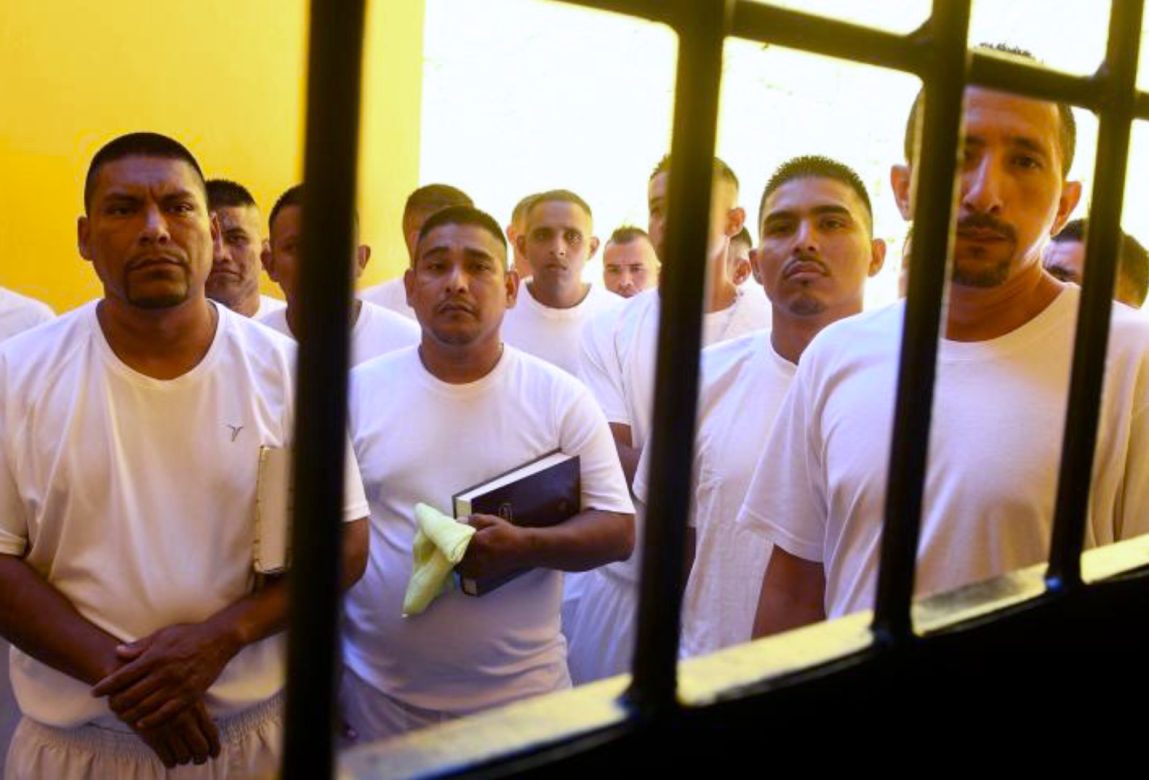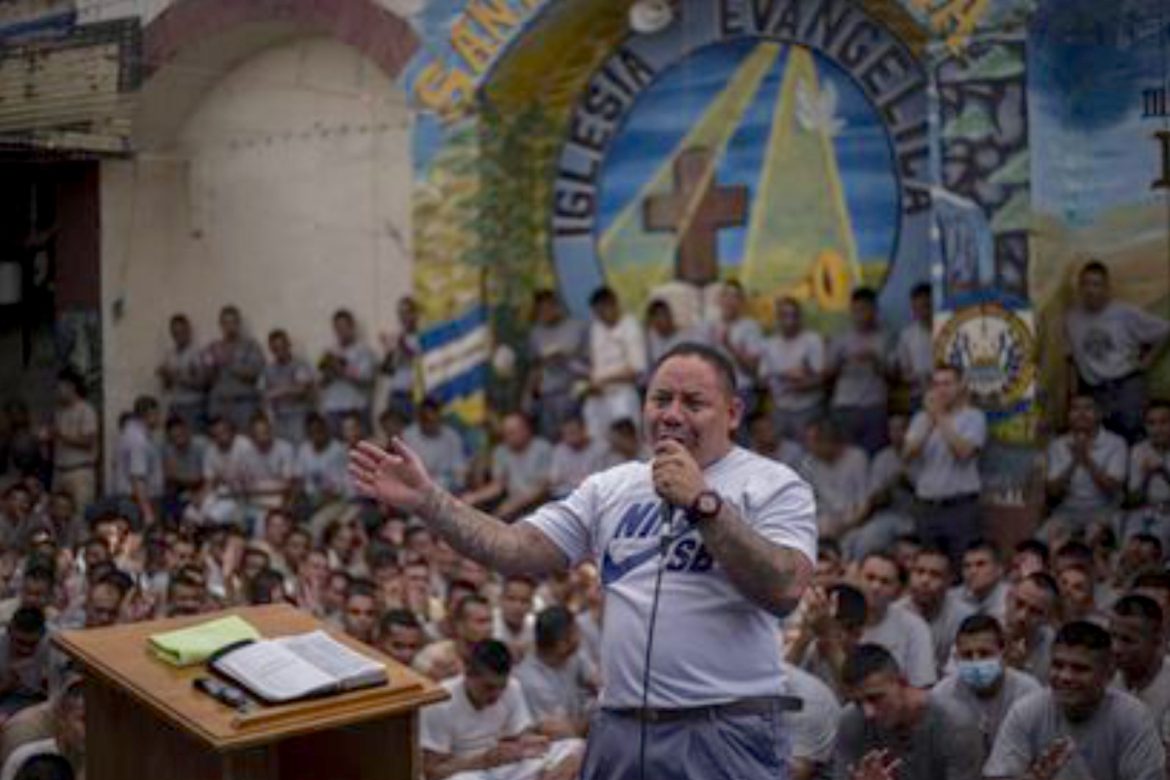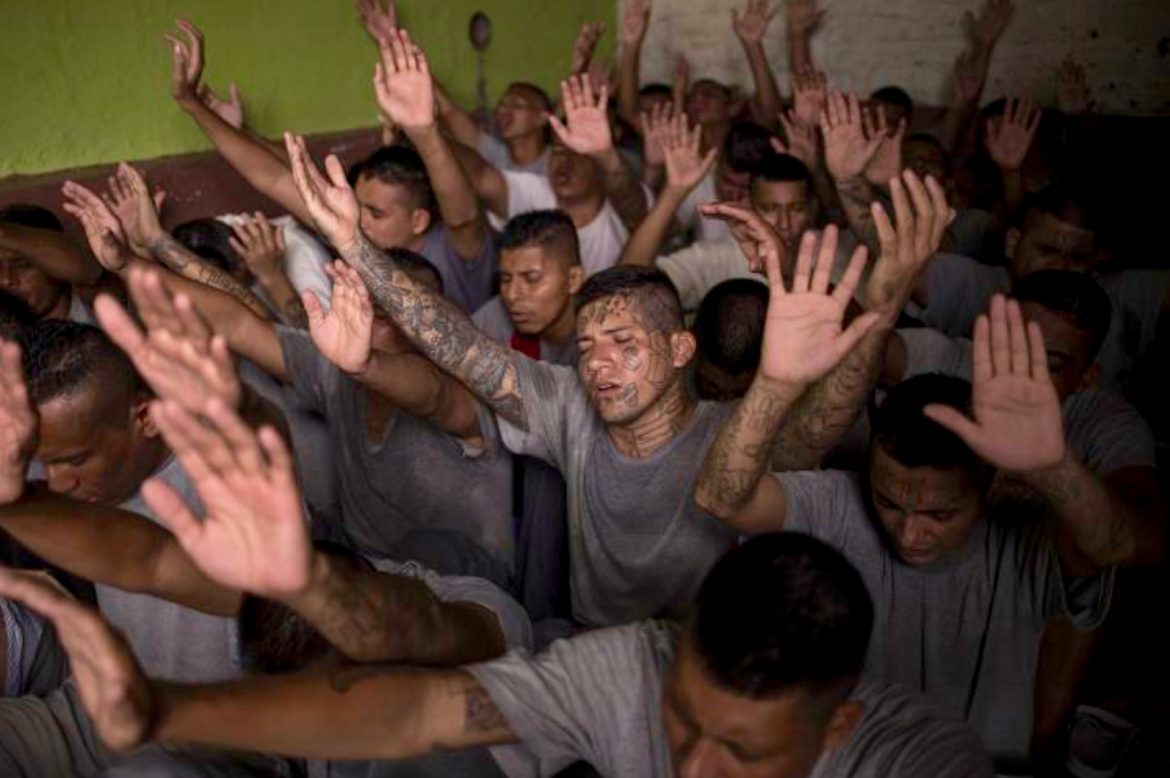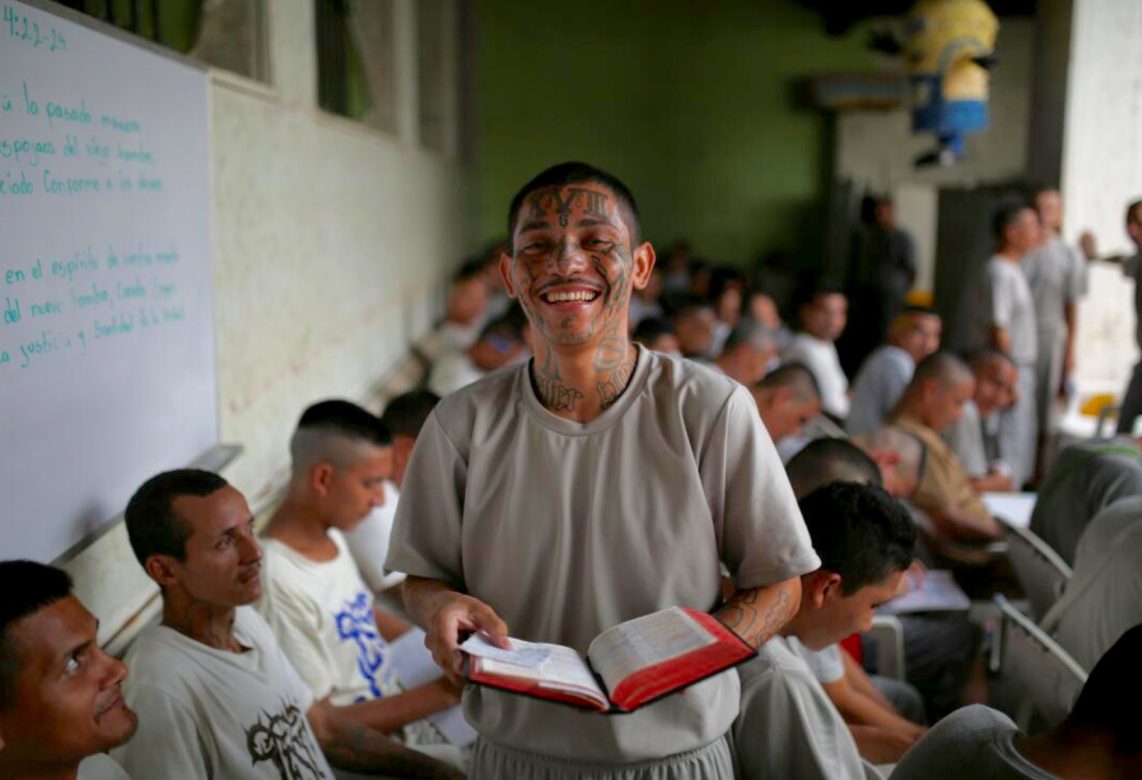One of the most compelling sessions at the Global Pentecostal Summit was Reverend Juan Angel Castro’s presentation on the power of the Holy Spirit in gang-ridden El Salvador. He tells City News how Christians in his country share the love of Christ without fear to gang members and God moves.
PHOTOGRAPHS OF EL SALVADOR COURTESY OF JUAN ANGEL CASTRO

Photo by Daniel Poh
How is it that in a prison in El Salvador where the most dreaded gang members are held, the message of Jesus Christ is being preached and these violent prisoners are falling at His feet? It is only possible by the power of the Holy Spirit.
Rev Juan Angel Castro, the lead pastor of Centro Evangelistico and the general director of the Assemblies of God (El Salvador) ministers in El Salvador, which is recognised as one of the most violent nations in the world. He spoke at the recent Global Pentecostal Summit in Singapore on “The Role of the Church in the Context of Violence”, sharing how the Holy Spirit’s power is most evident during such dark tragedy.
In 1980, El Salvador entered a 12-year-long civil war that resulted in thousands killed, missing or homeless. When the war ended in 1992, a new wave of violence hit the nation: the youths, a great number of whom had lost their fathers in the war, joined gangs. Rival gangs fought, looted and killed, ruling the neighbourhoods and cities and keeping citizens in a constant state of fear.

However, in the midst of all that terror and darkness, the Holy Spirit began to move. At the time of writing, there are 1,200 followers of Jesus in El Salvador’s prison system, their lives radically transformed by the Holy Spirit.
Rev Juan is one of those responsible for bringing about this change. His church and ministry focus on transforming the lives of gang members in prison, giving them a sense of family and identity. City News spoke with him about his work, his love for his people and what it takes to work against the tide of gangs and violence.
We understand El Salvador suffers from poverty. What challenges do the people contend with?
Poverty is a multi-dimensional problem: it is a lack of access to opportunities, to education, to work, to places of living. All the wealth in El Salvador is in the hands of 100 families. There is a very small and rich class, and everyone else is poor. The people live on just $2 a day, and each family has about three to five kids. In all of Latin America there is a horrible chasm between the rich and the poor, but El Salvador has a greater divide.
Is the family unit strong in El Salvador?
There are a lot of dysfunctional families. This is the primary cause of the growth of gangs in El Salvador. The gangs can give young people the feeling of being in a family.

You are doing such a great work in El Salvador, transforming the lives of so many people. Can you describe the work you do?
I only represent the church. There are a lot of anonymous unknown heroes, and they deserve the credit. There are pastors who are very humble, who are working in very dangerous neighbourhoods. During the worst time of the gang problem, there were regular people too. But they were dressed with the authority of God; they were anointed with the Holy Spirit and they would speak face to face with the leaders of the gang.
I remember one pastor. One of the gang members had taken the sound system from his church. He got really mad. He said, “I preach with this sound system.” He went to the leader of the gang. Now, everyone was scared of this gang leader—he could kill you without a reason. But the pastor went.
He said, “I come in the name of Jesus, and I want my sound system back. It belongs to God, give it back to me!” The leader of the gang said, “You’re brave, and you are a man of God,” and returned the sound system to the pastor!
I also remember old women who were strong prayer warriors. They would talk to the gang leaders with authority. The women would cry and say to the gang, “Repent, come to the Lord’s feet!” And when the gang members responded, the women would prophesy over them. These are the unknown heroes in our nation.
After the prisoners are converted, how do you challenge them to remain in their walk with God? Especially when their friends and family members may still be in the gang?
This is one of the most difficult tasks we have. Integrating the ex-prisoners back into society is so tough—it is a whole process.

First, we have to disciple them, give them refuge, give them work, help them get rid of their tattoos so that they can be integrated again. This is because the public is afraid of those with tattoos. These converts are stigmatised by the tattoos. So integration is a long process, and they need to be accompanied by other people. And we need to have a lot of compassion for them.
The temptation for the converts to return to the gangs is real, and there are a lot of cases where they do go back. And they will go in prison again, and the cycle repeats. We just keep loving them.
What is the situation in El Salvador now? Is violence still very prevalent?
Two years ago, things changed. The government implemented martial law, and they put 77,000 gang members in jail. We can go out now openly, from one neighbourhood to another. Previously, we were unable to because the gangs wouldn’t allow us to. Now we can also have night meetings. Things are definitely better!
I did not mention in my presentation the role of education in the changes. We have over 47 Christian schools, and that is about a million kids and young people who passed through the schools. These are schools under ChildHope, the network of evangelical schools started by Pastor Douglas [Petersen].
There is still a lot of work to be done. Although gang membership is dropping, the problem of poverty continues. The church can do the work best. We have to take on that role.
Part of your ministry is developing leaders in your country. How do you bring the culture of church and gang culture together?
Jesus puts our human culture and Kingdom culture together. We need to listen to the needs of a gang member when we reach out to them. One example was how Jesus dealt with the Samaritan woman at the well. He was concerned for her, and He knew what her needs were.
For the gang members in El Salvador, God does not want His children to grow up in the gangs. So the church should help them, even when they are still in gangs. They know that the church can help them, and they clearly do not want their children to have the same life as they are. Once they are saved, they will bring their whole family to church. Their conversion is very genuine and real.

Why did you come to participate in the Global Pentecostal Summit?
This is a great opportunity to share with the people here what the Lord is doing over in El Salvador.
It looks like you have a very close relationship with Prof Doug Petersen. Can you tell us about your relationship?
He was my teacher when I took the Master’s degree at Vanguard University. But a long time before that, when I was a missionary in Ecuador with my family, I got to know Pastor Doug and we began this friendship for almost 35 years. When he was the president of ChildHope in Central America, we started to visit Costa Rica and he visited El Salvador. Pastor Douglas is very, very kind. He is my mentor.
You said that in El Salvador, back in 1980, only 7 percent of the population were Pentecostals. But now it’s 40 percent. What do you think El Salvador would be like as God continues to move in the next 10 years?
There are moments where, biblically, there has been an apostasy. We saw that after the pandemic—there were a lot of people leaving the church. But at the same time, there is a remnant of faithful and I believe that God is going to work through this remnant, bringing a revival to reach the greatest amount of people before the return of Christ.
How can we pray for El Salvador?
(visibly touched) We need a revival again. The work ahead is discipleship. We need to evangelise and disciple the kids. When we reach out to the new generation, we will have a great revival—a great family revival.

